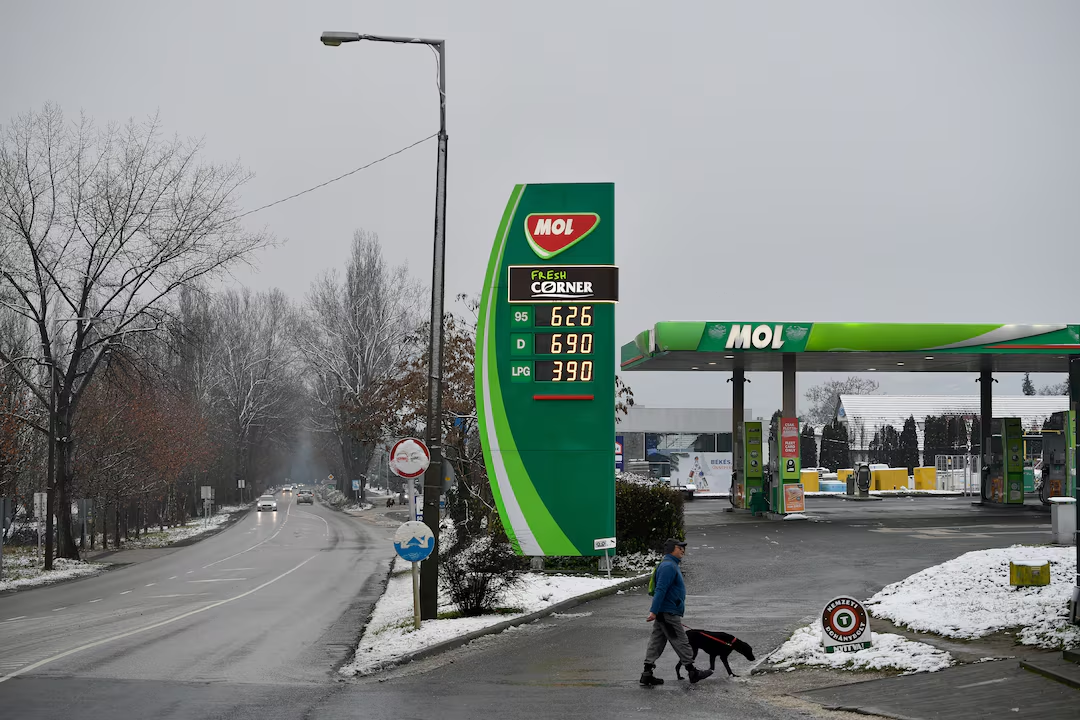 Fuel prices are seen on a board at a gas station of Hungarian oil company MOL Group in Esztergom, Hungary, January 21, 2023. REUTERS/Marton Monus/File Photo Purchase Licensing Rights
Fuel prices are seen on a board at a gas station of Hungarian oil company MOL Group in Esztergom, Hungary, January 21, 2023. REUTERS/Marton Monus/File Photo Purchase Licensing Rights
Hungarian oil group MOL (MOLB.BU), expects its refineries to be able to process both Russian and non-Russian crude oils by the end of 2026, a year later than planned as some adjustment projects have been delayed, a senior MOL executive said.
Following Russia's invasion of Ukraine in 2022, the European Union prohibited its member states from importing Russian oil, but exempted Hungary, Slovakia and the Czech Republic to allow them to find alternative routes and supplies.
But some within the bloc, most recently European Commission President Ursula von der Leyen, have said Hungary has not done enough to wean itself off Russian oil and gas.
MOL, whose two refineries in Slovakia and Hungary are fed with Russian crude via the Druzhba pipeline's southern spur, has been investing in technology needed to diversify away from Urals oil, but progress has been slower than expected.
Viktor Sverla, MOL's vice president for strategy and sustainability, told Reuters on Thursday that MOL can refine up to 30%-40% non-Russian crude at its refineries in Slovakia and Hungary now.
"There are investments under way that we could increase this to 100% by the end of 2026," Sverla said.
MOL's executive chairman Zsolt Hernadi had told Reuters in April 2023 that MOL would be able to choose between Russian or non-Russian crude for its refineries by end-2025 or early 2026.
"We are not really content with the present transit fees, and we trust we will be able to reduce these fees in the future, but an even more important issue for us is that we should have a long-term contract," he said.
"However, the Druzhba pipeline is vital for us and our aim is to have a diverse crude oil procurement relying on both Russian and non-Russian oil."
Asked whether MOL was prepared for an expiry of the exemption on Dec. 5 which the European Union granted Slovakia to export fuel produced from Russian oil, Sverla said MOL could increase its share of non-Russian crude at its Slovak refinery to 50% if needed.
 Fuel prices are seen on a board at a gas station of Hungarian oil company MOL Group in Esztergom, Hungary, January 21, 2023. REUTERS/Marton Monus/File Photo Purchase Licensing Rights
Fuel prices are seen on a board at a gas station of Hungarian oil company MOL Group in Esztergom, Hungary, January 21, 2023. REUTERS/Marton Monus/File Photo Purchase Licensing Rights